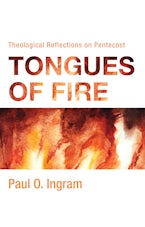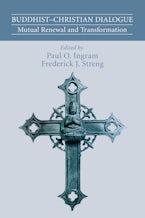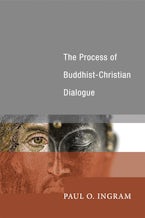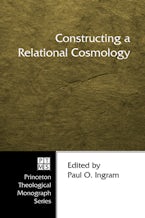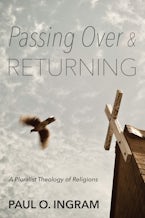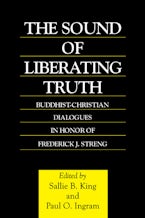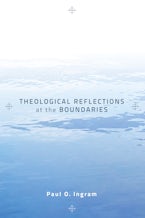Pentecost celebrates the countless expressions of God's love and wisdom. Like a skilled dancer, God's Holy Spirit moves through all creation, bringing forth life and love and inspiration. Fire and wind are everywhere. Inspiration and revelation are just a moment away and can come either by surprise or as a result of the interplay between God's wisdom and our intentional spiritual practices. The spirit blows where it wills, in all directions, embracing all life, human and nonhuman. In other words, Pentecost is about God's omnipresence, which Ingram interprets through the categories of Whiteheadian process theology, as God's ever-present "initial aim" that all things and events at every moment of space-time achieve the maximum self-fulfillment of which they are capable. Intentionally conforming our "subjective" aims for our own fulfillment with God's initial aim for us, as the historical Jesus did, is the call of Pentecost. Omnipresence is an all-or-nothing deal. God can't be a little omnipresent. Either God is present in, with, and under every thing and event since the beginning of creation--what theologians and philosophers call panentheism--or omnipresence makes no sense.
Paul O. Ingram is Professor Emeritus at Pacific Lutheran University at Tacoma, Washington. He is the author of numerous books, including Faith as Remembering (Cascade, 2017), You Have Been Told What Is Good (Cascade, 2016), Living without a Why (Cascade, 2014), Passing Over and Returning (Cascade, 2013), and Buddhist-Christian Dialogue in an Age of Science (2008). He now resides with his wife in deliberate simplicity in Mukilteo, Washington.
“Paul Ingram's commentary on the lectionary readings will have practical value for anyone preparing to preach. However, he has written in a way that deserves a far wider audience.”
—John B. Cobb Jr., author of Jesus' Abba: The God Who Has Not Failed
“Ingram’s Tongues of Fire is simultaneously an interpretation of Pentecost and an explanation of process theology that invites scholars to explore biblical and theological themes and faithful Christians to read key biblical texts devotionally. Somehow, through Ingram’s clarity and style, Scripture and process theology come alive again. Process theology enlivens the focal Scripture in each chapter, while the Pentecost event imparts concrete and lively relevance to process theology.”
—Nancy Howell, St. Paul School of Theology
“Paul Ingram's rich meditations on Christian Pentecost Scriptures embody his many years of academic study as a Lutheran scholar of world religions. These Ordinary Time reflections, framed by process theology, call the reader toward compassion and harmony with all the cosmic living. Ingram says that, though there be tragedy, though faithful lives might end on a cross, this will not be the final word. Here is an inspiring, thoughtful, and hopeful book indeed!”
—Douglas E. Oakman, Pacific Lutheran University

